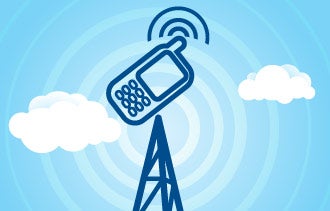3 Steps to Changing Mobile Service Carriers If coverage is weak and hurting your business, consider these tips for trying to get better mobile service.
By Amy Gahran
Opinions expressed by Entrepreneur contributors are their own.

If your smartphone has been dropping more calls or is taking more time to download web pages or email, it might be time to start thinking about switching mobile carriers to get better service.
Turns out many people are in this position. More than a quarter of small- or medium-size business customers surveyed by J.D. Power & Associates reported problems with dropped or disconnected calls on their work cell phones between last October and February -- a 30 percent increase from the same period the prior year. About one in five people said they experienced mobile Internet or email failure, up nearly 50 percent.
All the major U.S. carriers, and even some smaller discount carriers, have been aggressively touting their faster 4G data networks, which are supposed to solve many problems with data speed and bottlenecks. While J.D. Power found that more than half of all U.S. business mobile users now have at least one 4G-capable device, customers report being slightly less satisfied with performance and reliability.
The survey found that business customers who experience wireless connectivity problems of any kind are over three times more likely to say they plan to switch carriers in the next year.
If you're experiencing these issues and thinking of switching mobile carriers, here are the three steps you'll need to take:
Related: 3 Tips for Choosing the Right Smartphone for Your Business
1. Document service problems and compare connection quality.
If you want to find the carrier that offers the best wireless network coverage in your area, don't rely on their own coverage maps on their websites. Try going to Rootmetrics.com for its independently collected data on how well the major carriers provide 3G and 4G network service in your zip code. The color-coded maps show average signal strength and data network speed for specific areas, down to the block level in most cases.
You also can collect your own data. Install the free Rootmetrics app on your iPhone or Android phone to test and keep track of the signal strength and data network speed of your current wireless carrier. Alternatively, bookmark MobileSpeedTest.com in your phone's web browser. Periodically run its data network speed test and note the results.
If you suspect your data network is slow or spotty, try running tests of data upload and download speeds both when your connection is good and when it seems poor. To get accurate results, be sure to disable your phone's Wi-Fi connection whenever you run connection speed tests. Keep detailed notes about when and where your phone drops calls and your web connection slows down.
2. Research other carrier options.
Before negotiating with your current carrier, get yourself in a stronger bargaining position by researching the competition.
The small businesses polled by J.D. Power gave Verizon the highest marks for coverage on average nationally, followed closely by Sprint and T-Mobile. AT&T fell in last place by a significant margin.
Related: Three Technologies That Will Change the Way You Use Wi-Fi
But wireless coverage is a local -- even a hyperlocal -- issue. If the Rootmetrics data for your specific locations or routes indicates that a different carrier offers better or at least comparable coverage, check in with that carrier and get the details about what it might offer you in terms of phones and plans.
3. Complain to and negotiate with your current carrier.
Armed with your mobile testing data and information about at least one competing plan, visit or call your current carrier to complain about service and threaten to switch. Even if other local carriers offer only comparable or slightly better coverage, threatening to switch can help get your provider's attention.
If you or your company has been a longtime customer, you will most likely have more bargaining power. You can also gain leverage if your current wireless contract is nearly at an end or has already expired. Sometimes mobile-service providers will make network improvements if enough local customers complain. Your carrier might also offer a one-time or ongoing bill reduction.
Related: Three Ways to Extend the Battery Life of Smartphones and Tablets
If connectivity is a problem in a specific location like your home or office, the carrier might provide a booster -- often called a microcell or network extender -- to increase signal strength. If the signal problem isn't because you work in a sub-basement, push to get that booster for free.
Also consider the business value of your connectivity. If your company loses sales or experiences other problems when your mobile connection fails, you might come out ahead by paying an early termination fee and switching carriers. Your provider might even waive an early termination fee if you show that your coverage has routinely been abysmal.









